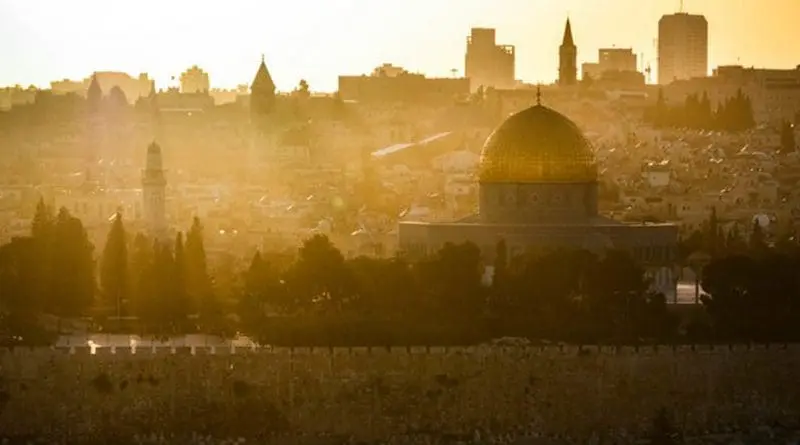Jerusalem: Patriarch ‘Threatens To Close Holy Sepulchre Church’ Over Bank Freeze
By Maan
The Greek Orthodox Patriarchate is threatening to close the Church of the Holy Sepulchre in Jerusalem in a dispute over water bills, an Israeli newspaper reported Friday.
Patriarch Theophilos III said he will shut the church doors in several days, if Israeli authorities do not lift a bank freeze on the Patriarchate’s account, Maariv reported.
The church, said to be the site of Jesus’ crucifixion and burial, is struggling with a 9 million shekel ($2.3 million) unpaid bill owed to the Jerusalem water company.

This week the Greek Orthodox Patriarchate of Jerusalem, which has extensive and valuable property holdings in the Holy Land and maintains a headquarters in the ancient church, had its bank account frozen, said an official at water company Hagihon.
The General Secretary of the Patriarchate, Archbishop of Constantina Aristarchos, had no comment on the Maariv report. He said the church was willing to pay water bills from now on, but that the accumulated debt, stemming back years, would be problematic.
“We trust God and hope that people will help us,” he said, adding that the Patriarchate has sent letters to Israeli President Shimon Peres and Prime Minister Benjamin Netanyahu.
Maariv said that for decades there had been a tacit agreement between the church and a former mayor of Jerusalem, exempting the Patriarchate from paying for water piped to the Church of the Holy Sepulchre.
A spokesman for Hagihon, however, said the law did not permit the company to make such exemptions.
Talks with the Patriarchate have been going on for years, he said. The company had refrained from taking lawful enforcement steps, such as shutting the water off at the church, in order not to disrupt prayers and tourist activity at the site.
The church, inside Jerusalem’s Old City, encompasses Golgotha, or Calvary, where Jesus is believed to have been crucified and the tomb where he was buried and resurrected.
A church was first built there in the 4th century under Constantine the Great, the first Christian Roman emperor, whose mother, Queen Helena, had visited the site and identified it as the place of Jesus’ resurrection.

